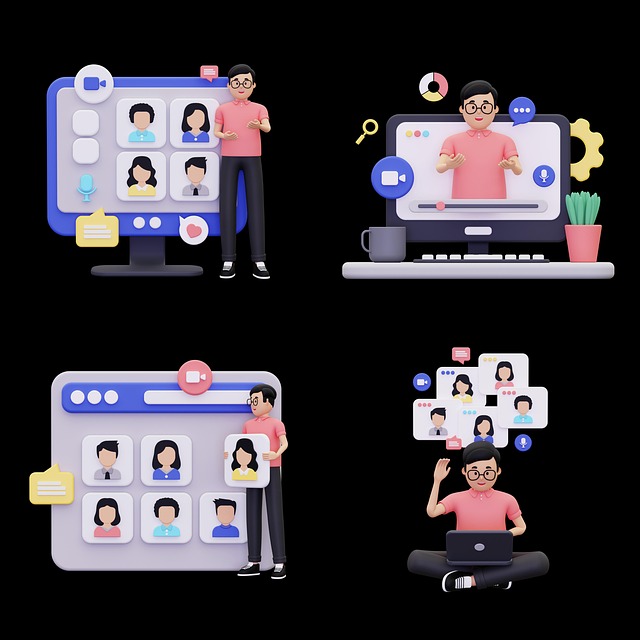In today's digital age, couples counseling virtual has emerged as a revolutionary alternative to traditional therapy, offering personalized support and flexibility from the comfort of home through secure video conferencing tools. By eliminating geographical barriers and providing interactive features, this approach saves time, enhances collaboration, and fosters safe, private discussions for couples seeking relationship strengthening solutions. Effective remote rapport building, clear tech instructions, and reliable resources ensure accessibility and success in couples counseling virtual. Online platforms provide tailored interventions, engaging exercises, and educational resources for enhanced accessibility and improved mental healthcare.
In today’s digital age, web-based relationship therapy, or couples counseling virtual, is transforming mental health care. As technology advances, more couples are turning to online platforms for support, accessibility, and convenience. This article explores the rise of web-based therapy and its benefits for modern relationships. We delve into the advantages, strategies for overcoming barriers, and the integrating technologies shaping the future of couples counseling virtual.
- The Rise of Web-Based Therapy: A Modern Approach to Mental Health Care
- Couples Counseling Virtual: Benefits and Advantages for Modern Relationships
- Overcoming Barriers: Making Online Therapy Accessible and Effective
- Integrating Technology: Tools and Platforms Shaping the Future of Relationship Therapy
The Rise of Web-Based Therapy: A Modern Approach to Mental Health Care

In today’s digital era, web-based therapy has emerged as a revolutionary approach to mental health care, particularly for couples seeking counseling. The rise of virtual couples counseling is a testament to the changing dynamics of how people access support and services. With the advancement of technology, platforms offering online therapy sessions have become increasingly popular, providing convenience and accessibility that traditional in-person therapy may not offer.
This modern approach allows couples to engage in counseling from the comfort of their homes, breaking down geographical barriers. Through secure video conferencing tools, clients can connect with licensed therapists, participate in interactive sessions, and receive personalized support for various relationship issues. The accessibility of web-based therapy has the potential to reach a broader audience, ensuring that those who may have limited access to local mental health services or prefer the anonymity and flexibility of online platforms can still benefit from professional counseling.
Couples Counseling Virtual: Benefits and Advantages for Modern Relationships

In today’s digital era, couples counseling virtual has emerged as a game-changer for modern relationships. This innovative approach allows couples to access professional therapy from the comfort of their homes, eliminating geographical barriers and making mental health support more accessible. With video conferencing tools and secure online platforms, couples can engage in therapeutic sessions, explore communication issues, and work through conflicts without stepping out of their homes.
The benefits of virtual couples counseling are numerous. It offers flexibility, saving time and travel costs for both partners. This medium also fosters a safe and private environment, encouraging honest discussions about sensitive topics. Furthermore, many platforms provide interactive features like shared documents or chat functions, enhancing collaboration during sessions. As a result, couples counseling virtual has become an attractive option for those seeking effective and convenient ways to strengthen their relationships.
Overcoming Barriers: Making Online Therapy Accessible and Effective

Overcoming barriers is essential for making web-based relationship therapy, or couples counseling virtual, a successful and accessible option. One significant challenge is ensuring effective communication between therapist and clients, especially in an online setting. Therapists must adapt their techniques to facilitate open dialogue and build rapport remotely. This often involves utilizing video conferencing tools, instant messaging platforms, and secure email systems to create a safe and confidential environment.
Another barrier is the potential for technical issues, such as poor internet connectivity or glitchy software. To navigate these challenges, therapists should provide clear instructions on using the technology, offer alternative methods of communication, and ensure all parties have access to reliable resources. With careful planning and adaptability, couples counseling virtual can overcome these obstacles, making high-quality therapy more accessible for couples seeking support from the comfort of their homes.
Integrating Technology: Tools and Platforms Shaping the Future of Relationship Therapy

The integration of technology has revolutionized the face of relationship therapy, offering innovative tools and platforms that cater to a digital-age audience. With the rise of couples counseling virtual sessions, individuals and couples can now access therapeutic support from the comfort of their homes. Video conferencing software enables face-to-face interactions with therapists, bridging the physical distance gap. These online sessions provide a safe space for open communication, allowing clients to explore sensitive issues in a private setting.
Additionally, various therapy apps and websites offer tailored interventions for common relationship challenges. From interactive exercises to guided meditations, these digital tools empower individuals to actively participate in their healing process. Such platforms often incorporate features like mood tracking, educational resources, and personalized recommendations, fostering self-awareness and progress monitoring. The future of relationship therapy looks bright, with technology playing a pivotal role in making quality care more accessible and engaging for couples seeking support.
Web-based relationship therapy, or couples counseling virtual, has emerged as a powerful tool in modern mental health care. By leveraging technology, this approach offers numerous benefits and advantages for couples seeking support. Overcoming barriers through accessible platforms and effective integration of tools promises to shape the future of relationship therapy, making it more convenient and impactful than ever before.






